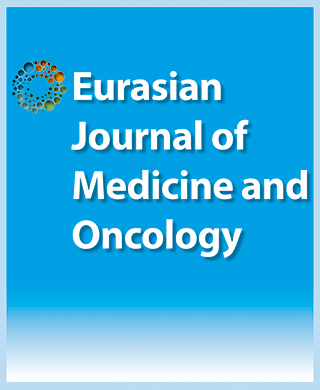

Correlation-Based Comparative Machine Learning Analysis for the Classification of Metastatic Breast Cancer Using Blood Profile
Mahendran Botlagunta4, Mdhavidevi Botlagunta2, Manjula Devarakonda Venkata3, Christina Kanakapudi2, Zeba Khan41School of Biosciences, Engineering and Technology, VIT Bhopal University, Bhopal, India, 2Department of Computer Science and Engineering, Institute of Aeronautical Engineering, Hyderabad, India., 3Department of CSE, Pragati Engineering College(A), Andhra Pradesh, 4School of Biosciences, Engineering and Technology, VIT Bhopal University, Bhopal, India,
Objectives: Histopathological and mammography image-guided diagnosis is a common practice for the detection of cancer grade, which is often associated with poor survival outcomes in breast cancer patients. A deep learning (DL) based clinical decision support system was developed for histologic grading of breast cancer, which often requires invasive procedures or expensive imaging equipment. Our study aimed to establish a machine learning model based on simple blood profile data. Methods: The dataset consists of blood profiles of 1250 breast cancer patients and 259 normal subjects. Statistical methods were used to select the relevant feature for machine learning model development. Selected features were f itted into various Machine Learning classifiers to predict breast cancer with highest accuracy. Results: Correlation-based feature selection revealed that blood profile ratio counterparts were statistically significant (p<0.05) and were used for the classification of metastatic breast cancer patients as compared to normal subjects. Conclusion: The ensemble stacking classifier outperformed other algorithms with an accuracy, sensitivity, specificity, and F1 score with values of 96%, 98%, 98% and 98% respectively and it can be used for non-invasive laboratory-based diagnosis for early prediction of breast cancer. Keywords: Ensemble stacking classifier, Breast Cancer, blood profile, Correlation, Machine Learning, TukeyHSD
Cite This Article
Botlagunta M, Botlagunta M, Devarakonda Venkata M, Kanakapudi C, Khan Z. Correlation-Based Comparative Machine Learning Analysis for the Classification of Metastatic Breast Cancer Using Blood Profile. EJMO. 2024; 8(2): 152-164
Corresponding Author: Mahendran Botlagunta



